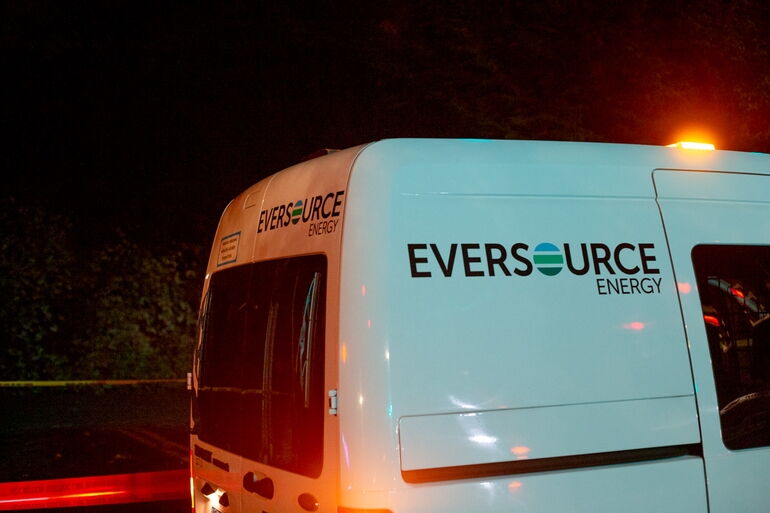Processing Your Payment
Please do not leave this page until complete. This can take a few moments.
-
News
-
Editions
-
- Lists
-
Viewpoints
-
HBJ Events
-
Event Info
- 2024 Economic Outlook Webinar Presented by: NBT Bank
- Best Places to Work in Connecticut 2024
- Top 25 Women In Business Awards 2024
- Connecticut's Family Business Awards 2024
- What's Your Story? A Small Business Giveaway 2024 Presented By: Torrington Savings Bank
- 40 Under Forty Awards 2024
- C-Suite and Lifetime Achievement Awards 2024
- Connecticut's Health Care Heroes Awards 2024
-
-
Business Calendar
-
Custom Content
- News
-
Editions
View Digital Editions
Biweekly Issues
- April 29, 2024
- April 15, 2024
- April 1, 2024
- March 18, 2024
- March 4, 2024
- February 19, 2024
- February 5, 2024
- January 22, 2024
- January 8, 2024
- + More
Special Editions
- Lists
- Viewpoints
-
HBJ Events
Event Info
- View all Events
- 2024 Economic Outlook Webinar Presented by: NBT Bank
- Best Places to Work in Connecticut 2024
- Top 25 Women In Business Awards 2024
- Connecticut's Family Business Awards 2024
- What's Your Story? A Small Business Giveaway 2024 Presented By: Torrington Savings Bank
- 40 Under Forty Awards 2024
- C-Suite and Lifetime Achievement Awards 2024
- Connecticut's Health Care Heroes Awards 2024
Award Honorees
- Business Calendar
- Custom Content
Eversource asks state regulators for direction on shut-off moratoriums
 Photo | CT Mirror
Eversource Energy has asked state regulators for direction about shut-off moratoriums.
Photo | CT Mirror
Eversource Energy has asked state regulators for direction about shut-off moratoriums.
With temperatures projected to fall into the mid-20s Friday night, advocates for Connecticut’s vulnerable are waiting for state regulators to extend key moratoriums on electricity and other utility shut-offs.
And Eversource Energy, which has had a tempestuous relationship with Connecticut’s Public Utilities Regulatory Authority, also urged the panel Wednesday for direction. Without an order from PURA to extend shut-off moratoriums, Eversource could be taking a financial risk by continuing the practice.
Connecticut already prohibits utilities from cutting service to households that cannot pay their bills during colder months. But in mid-March, as the coronavirus pandemic broke out, PURA prohibited gas, electric and water service shut-offs — regardless of hardship — for residential and small business customers.
Those prohibitions expired, though, on Aug. 1 for small businesses and on Oct. 1 for households.
Eversource Energy, filed a motion on Sept. 30 asking to preserve the moratoriums through Feb. 9. PURA responded in writing on the same day, advising the utility that timing was difficult.
“The authority received the instant motion less than 24 hours before the shut-off moratorium for non-hardship residential customers is set to expire, leaving no time for the authority to receive input from other stakeholders and other public service utilities this action would potentially affect,” the authority wrote.
It added that the utility “may, but is not required to” terminate customer service, and existing regulations “provide Eversource with discretion.”
But the utility giant — which operates what had been Connecticut Light & Power Co., Yankee Gas, and Aquarion Water Company — is in a quandary.
If Eversource operates under state order, existing regulations allow the utility to recoup its bad debt — in this case, the delinquent bill payments — from the rest of its customer base.
But if it maintains the moratorium without a mandate from PURA, it still can ask the state for permission to recoup the lost payments — but it has no legal claim to the funds.
“As a regulated utility, we can’t prudently take action that isn’t authorized by our regulators,” Eversource spokeswoman Tricia T. Modifica wrote in a statement. “We’re anxiously awaiting PURA’s decision.”
Modifica added that “Continuing the moratorium is the right thing to do for customers who have faced financial hardship, uncertainty and an unprecedented series of other challenges as the COVID-19 pandemic persists, and we are hoping that PURA will agree and authorize us to reinstitute the moratorium.”
Attorney General William Tong, who also has urged state regulators to extend the moratoriums, said Wednesday he wasn’t worried that a decision hadn’t been reached by Oct. 28.
“We have every expectation that utilities will do the right thing and pause any service disconnections while PURA reviews an official extension of the moratorium,” the attorney general said.
“I’m concerned about all customers, not just the hardships,” said Brenda Watson, executive director of Operation Fuel, who called it “unfortunate” the moratorium question remains unresolved in late October. A Hartford-based nonprofit, Operation Fuel provides emergency energy assistance to low-income Connecticut households since 1977.
The state’s acting counsel Counsel, Richard E. Sobolewski, was hopeful the moratorium would be extended soon “given that we see the COVID cases are rising again and we are getting into cold weather.”
Late Wednesday, the National Weather Service was forecasting a low temperature of 26 for Friday night in Hartford.
Eversource has faced a flurry of public since June, when PURA initially approved a major electric rate hike. Regulators suspended it, though, on July 31.
The criticism only intensified following Tropical Storm Isaias when it took Eversource nine days to correct more than 1.1 million outages.
The General Assembly and Gov. Ned Lamont responded in early October by enacting a measure mandating a performance-based rate system. They also raised the limit for civil penalties for utilities that fail to comply with emergency restoration and preparedness standards.

2022 Giving Guide
This special edition informs and connects businesses with nonprofit organizations that are aligned with what they care about. Each nonprofit profile provides a crisp snapshot of the organization’s mission, goals, area of service, giving and volunteer opportunities and board leadership.
Learn more
Subscribe
Hartford Business Journal provides the top coverage of news, trends, data, politics and personalities of the area’s business community. Get the news and information you need from the award-winning writers at HBJ. Don’t miss out - subscribe today.
Subscribe
2024 Book of Lists
Delivering Vital Marketplace Content and Context to Senior Decision Makers Throughout Greater Hartford and the State ... All Year Long!
Read Here-
2022 Giving Guide
This special edition informs and connects businesses with nonprofit organizations that are aligned with what they care about. Each nonprofit profile provides a crisp snapshot of the organization’s mission, goals, area of service, giving and volunteer opportunities and board leadership.
-
Subscribe
Hartford Business Journal provides the top coverage of news, trends, data, politics and personalities of the area’s business community. Get the news and information you need from the award-winning writers at HBJ. Don’t miss out - subscribe today.
-
2024 Book of Lists
Delivering Vital Marketplace Content and Context to Senior Decision Makers Throughout Greater Hartford and the State ... All Year Long!
ABOUT
ADVERTISE
NEW ENGLAND BUSINESS MEDIA SITES
No articles left
Get access now
In order to use this feature, we need some information from you. You can also login or register for a free account.
By clicking submit you are agreeing to our cookie usage and Privacy Policy
Already have an account? Login
Already have an account? Login
Want to create an account? Register
Get access now
In order to use this feature, we need some information from you. You can also login or register for a free account.
By clicking submit you are agreeing to our cookie usage and Privacy Policy
Already have an account? Login
Already have an account? Login
Want to create an account? Register






0 Comments